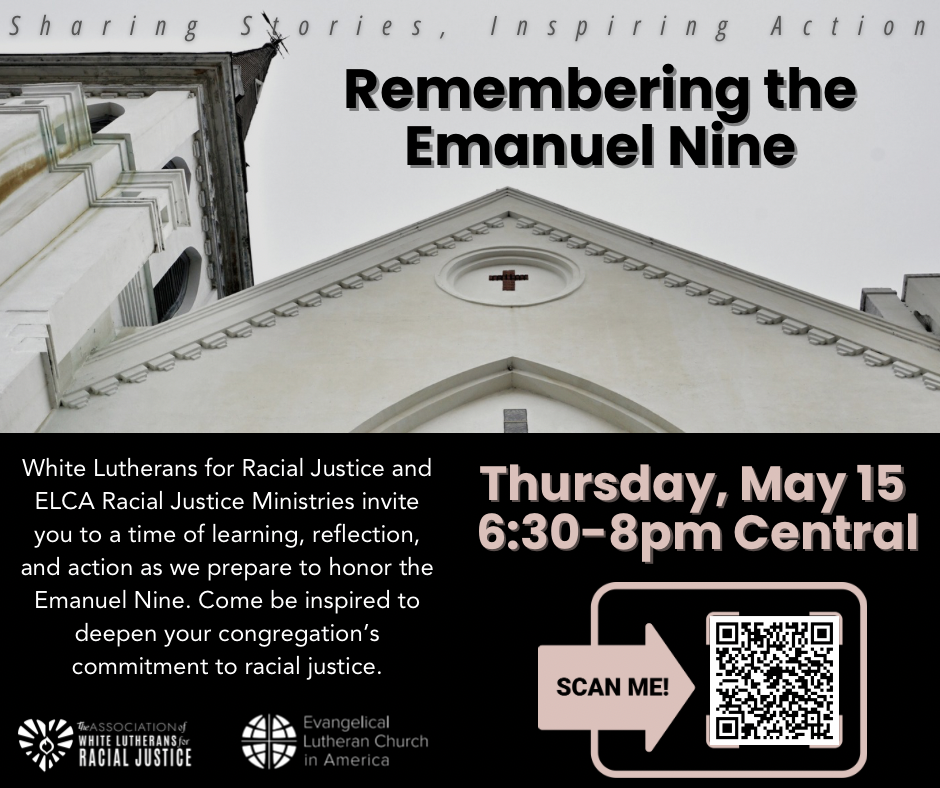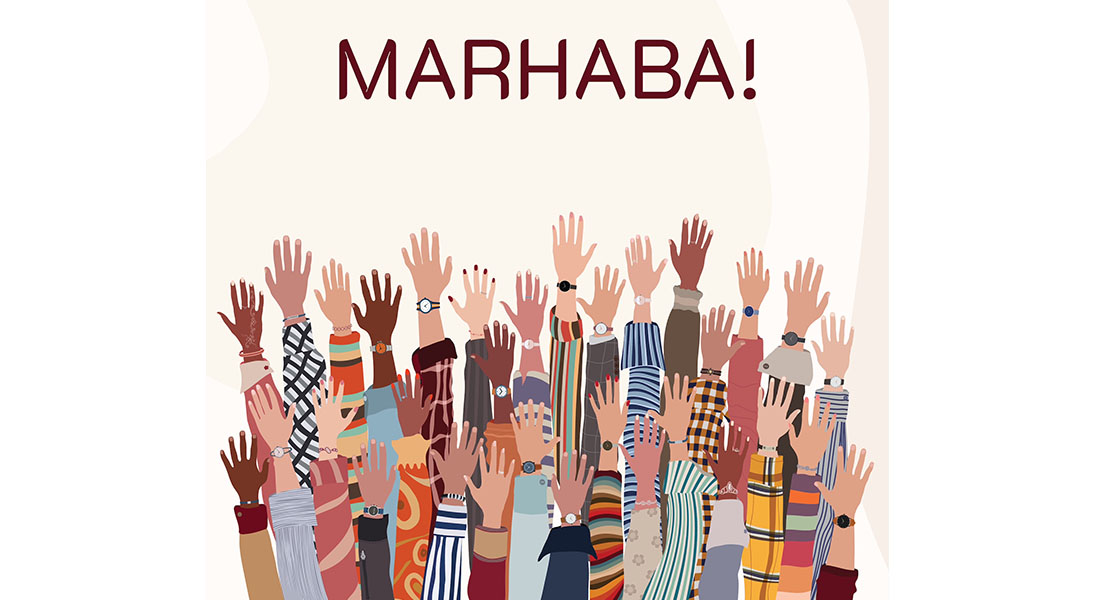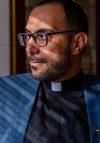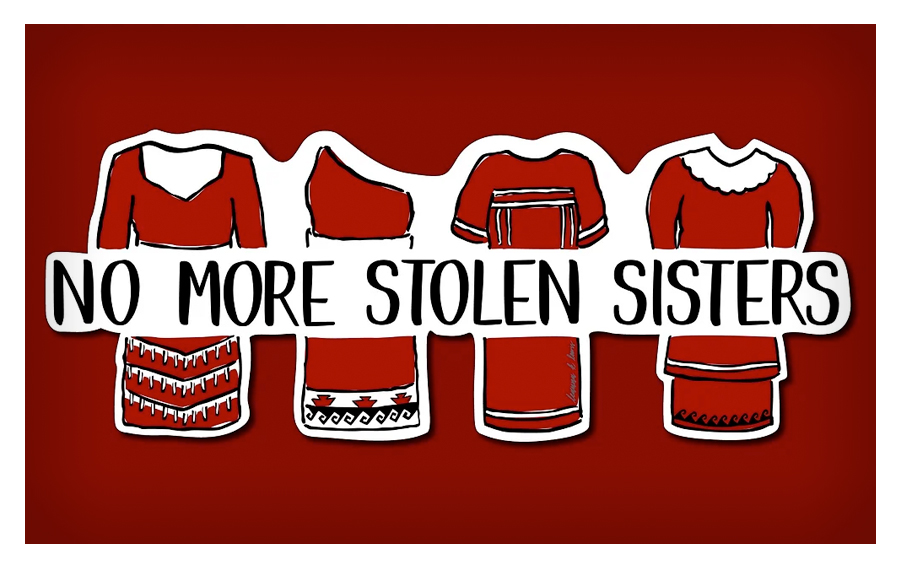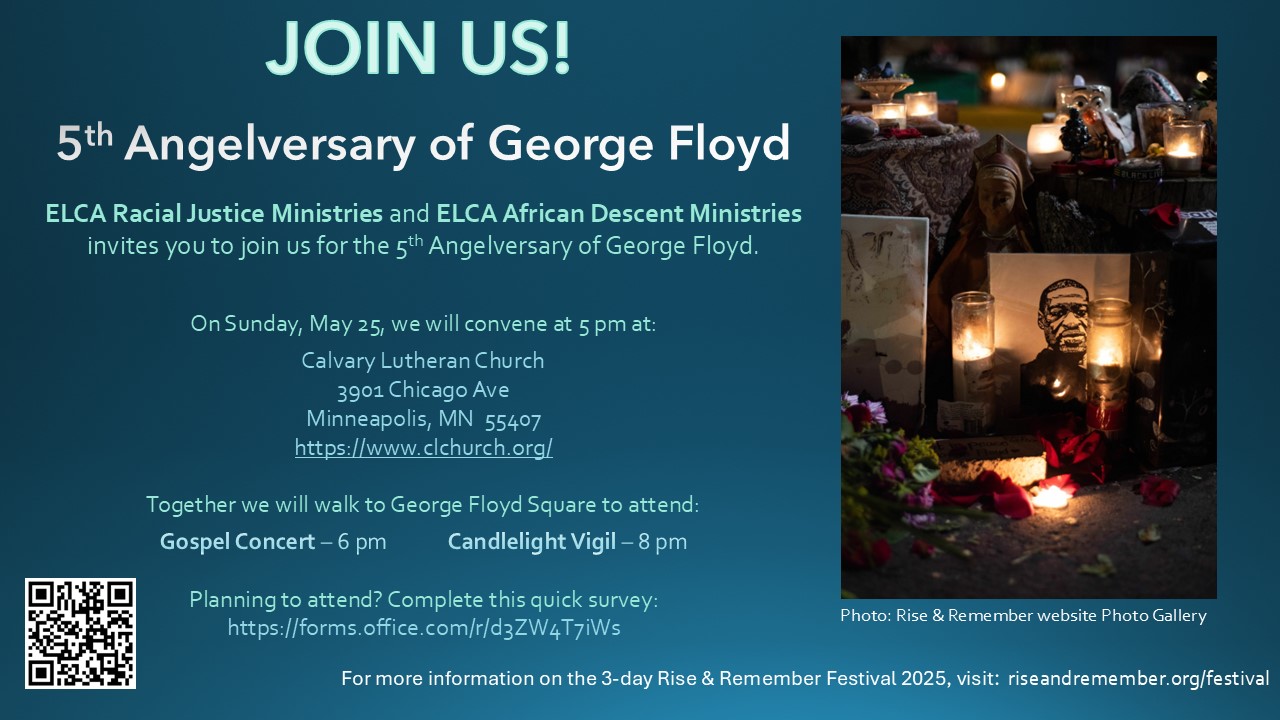The following reflection is cross posted from the Minneapolis Area Synod of the ELCA blog. The original post can be found here.
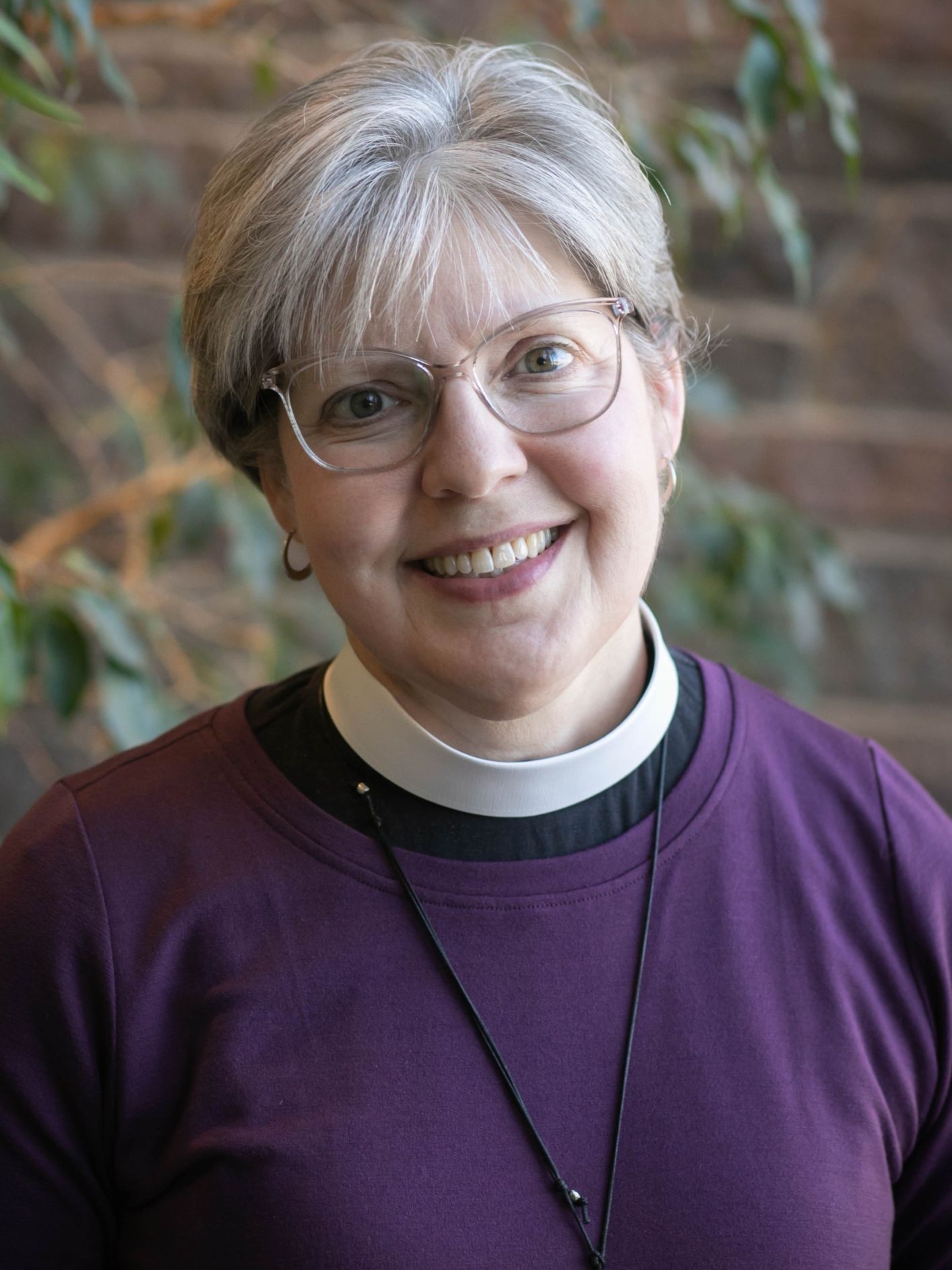 By Bishop Jen Nagel
By Bishop Jen Nagel
“When the day of Pentecost had come they were all together in one place . . . Divided tongues, as of fire, appeared among them.” – Acts 2
May 25th marked the 5-year Angelversary of the murder of George Floyd. That Sunday evening, as part of the Rise and Remember Festival and at the invitation of the ELCA Racial Justice Ministries, I joined a number of you for a fabulous concert featuring Sounds of Blackness and a moving vigil. We gathered beforehand on the steps of Calvary Lutheran Church, just a block south of George Floyd Square. ELCA Racial Justice Director Jennifer DeLeon grounded us for the evening, reminding us that people come to this event holding both memories and hopes, lament and a call to action. If you haven’t been to George Floyd Square lately (or ever), consider making a pilgrimage and ask for a community guide to share this sacred space with you or your group.
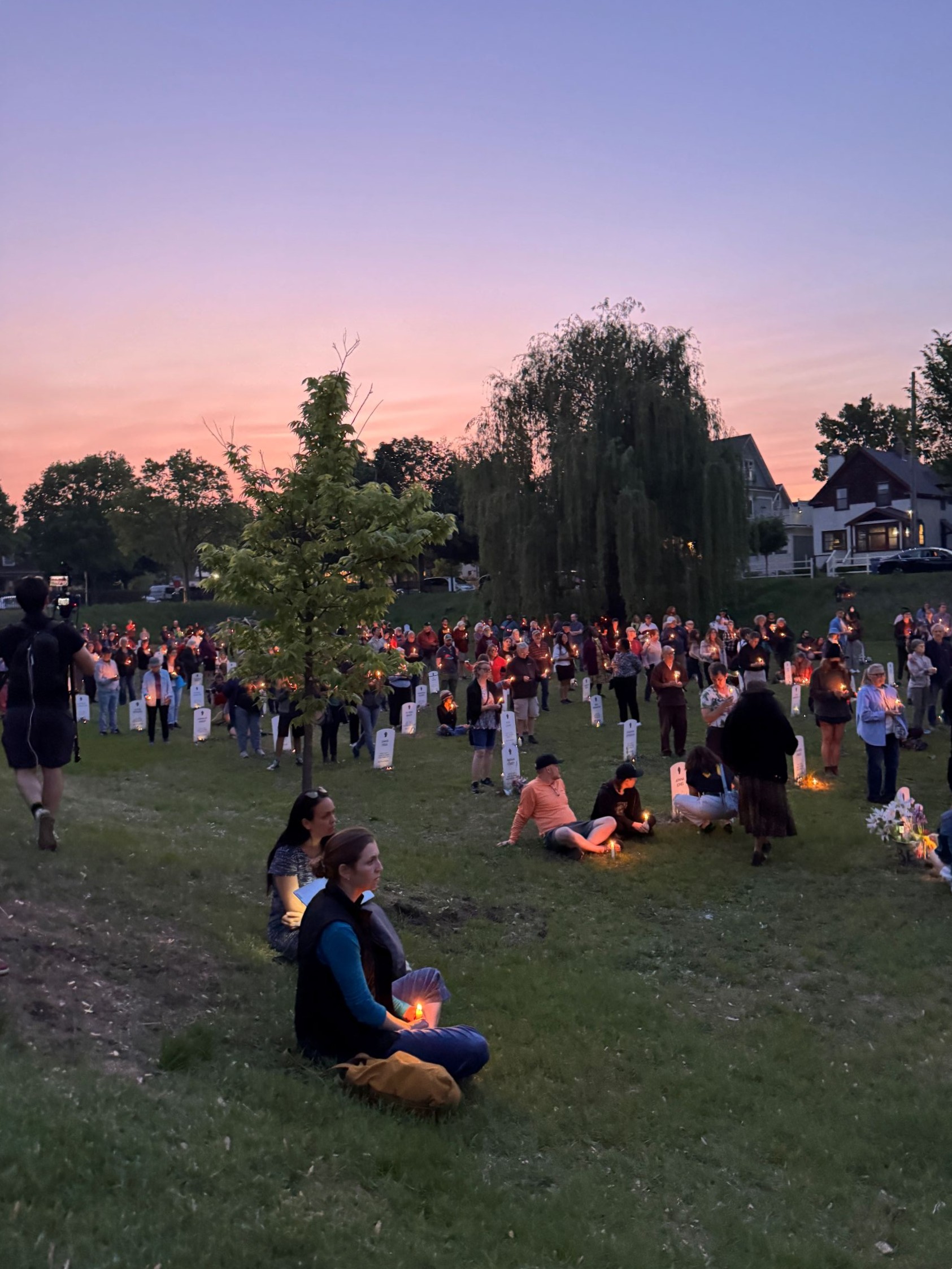
Photo credit: Pastor Melissa Pohlman
The sun was low when the concert ended. Theologian and community leader Jeanelle Austin stepped onto the stage to prepare us for the vigil. Volunteers quietly distributed candles. Now, let’s be clear: These were not the smaller candles we often hold during a Christmas Eve candlelight service, candles that flicker through a few verses of Silent Night and are soon extinguished. Instead, these were large tapers, ready for the long duration of the vigil and all it would include.
Austin described the plan: With candles lit, Brass Solidarity would lead us north past the spot where George Floyd was murdered, past exhibits and memorials filled with the names and stories of BIPOC individuals from around the country who have been victims of systemic racism and violence. We would turn west and go a block to Say Their Names Cemetery where over a hundred symbolic headstones bear the names of Emmett Till, George Floyd, Philando Castile, Jamar Clark, and dozens more. Anticipating the moment, Austin explained that we should move down into the cemetery and find a headstone where we would “hold space” as the youth and young adult musicians of Kamoinge Strings played several pieces, and then we would close with a prayer.
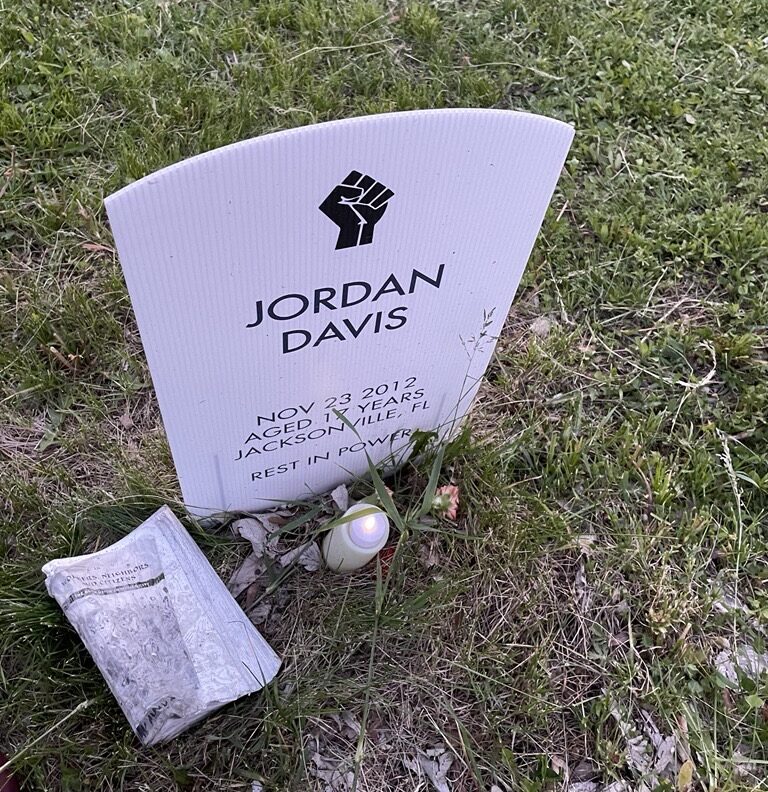 Holding space. As the sun set and night came, hundreds of us settled in around the headstones. Some people stood, some sat in the cool grass. Candle flames flickered and wax dripped. Music swelled. It was beautiful and incredibly sad all at once. I held space by the stone of a 17-year-old named Jordan Davis who was killed in Jacksonville, Florida, in 2012.
Holding space. As the sun set and night came, hundreds of us settled in around the headstones. Some people stood, some sat in the cool grass. Candle flames flickered and wax dripped. Music swelled. It was beautiful and incredibly sad all at once. I held space by the stone of a 17-year-old named Jordan Davis who was killed in Jacksonville, Florida, in 2012.
Holding space means creating a safe — yet also brave — environment in which people, with all our emotions, can be present and remember. I keep thinking of exercise classes and how they remind me to engage my muscles as I move this way or that. Holding space means figuratively engaging our muscles. It takes time. It makes us tired. It can be uncomfortable. If we do it well, we’ll grow stronger, we’ll gain endurance. I find that holding space is often profoundly moving. It’s holy work.
In times like these, the temptation is strong to move through these anniversaries – this pain, this trauma – passively, without really engaging. Holding space invites us into the vulnerable recognition that the world is not yet as it should be, and we are called to be present, engaged, honest to the grief and all the moment holds, and ready to be part of the change.
This Sunday we’ll celebrate Pentecost and the Holy Spirit’s movement. We believe that love is stronger than hate, that life is stronger than death, and that together, by the Holy Spirit’s power, we can be part of God’s new creation. That was my prayer as we held space with the sun setting and the candles flickering. That is my prayer today. May it be so.

